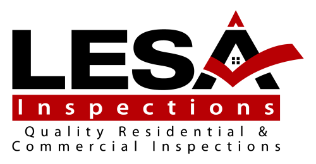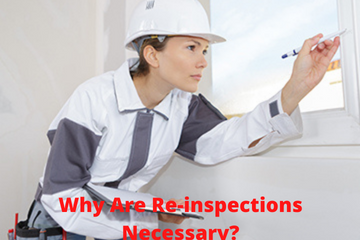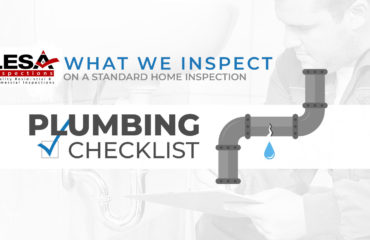A home inspection is said to be a complete check on the details of your home that you are planning to purchase, it is done by third-party people. You can hire them and get a detailed check on the things from the foundation to the roof. Its purpose is to assess the home from a structural and safety aspect, as well as to guarantee that you’re purchasing a property that’s a solid financial investment. Although home inspections aren’t necessary, there are a few situations in which you’d want to skip one. Learn more about the procedure and what to do afterward with our home inspection checklist.
A home inspection service is performed by a trained expert who walks around the house and assesses its condition. Home inspectors examine a home’s essential components and systems to see if there are any problems that need to be addressed right away.
Consider a home inspection to be a deeper dive into the structure. Is it in good condition or does it require extensive repairs? A home inspection checklist can help you decide whether to proceed with your purchase and can also be utilized as a negotiating weapon with the seller.
Step 1: Include a clause in your contract requiring a home inspection
The first step is to double-check that your sales contract includes a house inspection contingency, often known as a due diligence contingency. This allows you a certain amount of time to have a professional inspection done on the property.
Step 2: Learn how to use your home inspection contingency
The inspection period typically lasts one to two weeks from the moment your sales contract is signed, however this varies depending on your unique agreement. You should have ample time during the contingency period to:
- Locate a competent inspector.
- Make an appointment (and, ideally, attend it).
- Obtain a copy of your inspection report.
- Request any extra inspections or follow-ups (more on that later).
- Make a decision on how you want to proceed.
Step 3: Obtain the services of a competent home inspector
The importance of hiring a thorough, skilled home inspection cannot be overstated. Any certifications (NACHI, ASHI, etc.) should be current, as well as all training and educational courses. They should also have a comprehensive insurance coverage (which protects you if they are hurt on your property) and extensive knowledge in the region you are purchasing. This ensures that they are aware of any current issues in your area with dirt, pests, or even house builders.
Step 4: Double Check that your inspector adheres to the home inspection checklist
Every inspector handles things a bit differently, but they’re all meant to follow the same basic, standardized house inspection checklist. Certain inspectors may go above and above, or communicate their findings in a unique fashion.
Step 5: Go over your home inspection report with a fine-toothed comb
After the home inspector has completed their work on your house, they will compile a detailed report of their findings.
Step 6: Arrange for more inspections
You should also use your report to determine whether more inspections are required. You should have a termite inspection if the inspector notices any possible termite damage. If he mentions mould in his report, you should hire a mould inspector to investigate the property.
Among the other checks you might want to think about are:
- Inspections for asbestos.
- Inspections for pests.
- Inspections for radon.
- Inspections for termites or wood-destroying insects (WDI).
- Inspections for mould and mildew.
- Inspections for lead.
- Inspections of the sewer or drainage system.
- Inspections of the structure.
- Inspections of chimneys.
- Geological examinations.
Step 7: Determine What Matters — and What Doesn’t
It’s time to determine what to do with the findings of all your inspections once you receive them.
You should think about:
- What issues endangers you and your loved ones?
- Which ones would be the most expensive?
Step 8: Decide on a course of action
You’ll need to make a selection after reviewing your inspection reports and determining which concerns are major and which are minor. Do you go ahead and close the contract, renegotiate it, or go back to square one?
You have the following alternatives as long as you’re inside your contingency period:
Carry on as planned, with the same sales price and terms you agreed upon at the outset.
Ask the seller to renegotiate the price or for a credit against your closing fees to compensate the damages/repairs.
Request that the seller perform specified repairs.
- Carry on as planned, with the same sales price and terms you agreed upon at the outset.
- Ask the seller to renegotiate the price or for a credit against your closing fees to compensate the damages/repairs.
- Request that the seller perform specified repairs.
- Cancel your purchase contract completely and walk away from the transaction.
Step 9: Verify That Any And All Repairs Have Been Made
If you decide to have the seller make repairs to the house, make sure they are done to your satisfaction. Make an appointment with your agent for a walk-through.
You might wish to have your inspector come back out for a reinspection if the seller made extensive repairs. These allow the original inspector to return and double-check that all concerns have been fixed appropriately. They do come at a cost (though it’s generally a fraction of the initial inspection fee), but considering that they may avoid safety hazards and future repairs, they’re usually well worth the minimal outlay.
Step 10: Complete the Purchase of Your Home
Finally, you may close after you’ve renegotiated and checked that the necessary repairs were performed (and done correctly). On closing day, as long as everything with your lender go smoothly, you should be able to sign your papers and receive your keys.
Who is responsible for the cost of a home inspection?
In most circumstances, the house inspection cost is paid for by you, the homebuyer, at the time of service. According to experts, a home inspection costs on average $300 to $450, depending on the location.
Conclusion
Asking your real estate agent for a certified house inspection is a good start, but it doesn’t hurt to do your own research as well. Because a home inspection is such an important aspect of the homebuying process, it’s preferable to choose someone who is experienced — or better yet, qualified.





